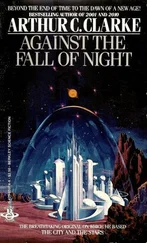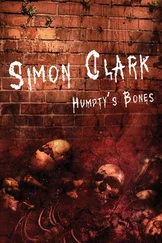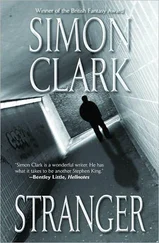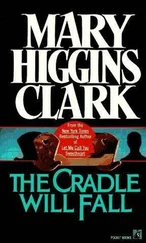Nicole Wagner had disappeared without trace in May. The following day the bus driver had vanished during the search for her. Of course there was speculation about death or elopement, or that they’d been individually whisked away to another epoch. But the simple fact of the matter was that neither had returned and the rest of the accidental time travellers had to get on with their lives, coping with day-to-day survival and dealing with the fact that they’d probably never again see families they’d left behind in 1999.
Rolle appeared to them only rarely now. What he told them was always fairly impenetrable. Even Jud confessed he couldn’t make much sense of it, even though the man did appear to be becoming calmer and much more lucid than before.
By mid-June, Carswell had become bored of sitting in his launch. One morning he’d simply untied the moorings and headed off downstream without telling anyone where he was going. He’d not been seen since.
Thomas had provided the people at the amphitheatre with a home in the shape of a rambling farm, outbuildings and cottages that belonged to the church. These had been vacant for a while; as there were no farmlands attached to them and they were some way out of town, Thomas had had trouble in letting them. Now, at least, he’d found some tenants – even though they were refugees from 1999.
So, during the week following that first meeting with the Reverend Thomas Hather, Sam had moved in with the 40 or so surviving time travellers. Only Jud and Dot Campbell and Carswell opted to stay afloat, which in any event eased pressure on what was, after all, limited living accommodation.
To avoid any more public interest in the vehicles they had moved them into the coach house and barn.
Sam had soon realised they couldn’t live in 1865 for nothing. Again they pawned valuables (modern jewellery they melted down into blobs of unidentifiable gold and silver before selling them). And after buying clothes (to blend in with the local population), paying a couple of months’ rent on the place and stocking the larder with enough food for 40 people for a few days, they realised they’d have to find work.
So, what was a TV director qualified to do in 1865?
Well, the answer was: not much – as Sam had swiftly realised.
Which was why he found himself working the ferryboat across the River Taro, just downstream from the amphitheatre. The cost of the crossing was a penny a head. Of that, he kept back a ha’penny for himself as his fee. After working through the summer, he was tanned and had developed a pair of powerful arms and a broad, hard back. There were calluses on his palms so thick he could have stubbed out a cigarette on them and not felt a thing. In the morning the old ferryman and his wife gave him breakfast. They owned the boat and were to all intents and purposes his employers; a kindly, lovable couple they were, too. Most mornings breakfast was oatmeal so solid you could stand your spoon upright in it like a flagpole. For special treats old Mrs Everton made bacon-tattie, which was boiled potatoes broken into pieces then fried in bacon fat, patted down into a dish like a pie and browned in front of the kitchen fire. This was then served with bacon cooked on hooks in the coal-fired oven.
The people of Casterton went for bacon in a big way. Sometimes Sam was served it for breakfast, dinner and supper, either baked, fried, boiled in a soup called cawl, or dry-smoked. But he found he grew not only to like it but positively to relish those savoury strips of cured pigmeat. Every night he returned to the farm with a healthy workman’s appetite for a meal of, if not more bacon, then bread, cheese, pickle, apple pie and an earthenware jug of ale. Then he slept like a baby in his attic room.
And, would you believe it? he told himself as he tied the boat at the landing stage. They were putting down roots here in Casterton .
Now Sam grew to know the townsfolk. Men would raise their hats, ladies would wish him a friendly good day. In the town’s café, where a huge mug of coffee was thrupence, milk cake tuppence and butter a penny, he could easily lose an hour or two chatting to new friends.
Within a couple of months, the fraternisation had deepened until Ryan Keith announced he was marrying a local girl. The daughter of a baker, she was, as Ryan told them, beaming; a good, strong-boned woman of 30. As soon as the engagement was approved of by the father, Ryan found himself on the baker’s payroll as an in-store assistant.
Lee Burton had found work in the local music hall as a bit-part player and general stagehand. He’d also moved into the same bedroom as Sue Royston, which had scandalised the rest of the community at Perseverance Farm. He’d moved back out, then promptly married Sue under a special licence with the Reverend Thomas officiating.
Hell, how quickly they were all absorbing the zeitgeist of Victorian Casterton. That little market town that sat in the centre of Great Britain, that in turn sat in the middle of Queen Victoria’s Empire with dominions as far away as the Canadian Arctic in the north and New Zealand in the south. Where old soldiers sat over tankards of ale in coaching inns and reminisced about how they’d fought Old Bony at the Battle of Waterloo. And there’d probably still be an old grandma or two who could remember when they were little girls and North America was still under the thumb of King George III.
That zeitgeist was slipping gradually under Sam’s skin, too. In 1999 he would have called it dating, but now he was ‘walking out’ with Zita. On Sundays he would walk with her to Casterton’s municipal park to listen to military brass bands playing to people sitting in stripy deckchairs; after that there was a cup of tea and some caraway loaf in the local tea shop.
Victorian Casterton even had a substitute for television. Every night there was a show at the music hall. This was more downmarket (and definitely more blue-collar) than the Royal Theatre with its presentations of Shakespeare and opera.
For a sixpenny ticket the music hall offered a mixed programme of entertainments (just like TV, Sam noted with a wry smile). For openers there would be ten minutes of songs and oom-pah-pah music, followed by a juggler or a magic act. Then came a half-hour play where all the players did their bit (including Lee Burton in costume and wearing white make-up that blazed dazzlingly in the limelight). Often the play was a melodrama that revolved around the theme of a drunken father who would one day get fabulously blasted on whiskey and kill his wife and/or children. Then he’d be arrested and sentenced to hang. At the last moment the ghosts of his family would appear in his condemned cell to forgive him. (The audience wept buckets at this, but still went out and got fabulously stinking drunk themselves after the show.) A variation of the plot would involve the hangman turning out to be the condemned man’s father who’d walked out on his wife and family because of his own drunkenness years before. Then, in a savage twist of fate, he would find he was putting a noose round his own son’s neck. After the hanging (which took place off stage with a scream and a thud), the remorseful hangman would deliver an impassioned monologue on the demon drink: marriage-wrecker and child-killer that it was.
And still the audience would hurry out of the music hall after the show, beelining it for the nearest alehouse or wine lodge.
But Sam saw that it was a good life in 1865 Casterton. The town was modestly prosperous. On the whole the people were healthy; those who survived childhood. The women especially were statuesque and radiated health and strength. Of course, there were those with deformities, untreated squints, scabies and the like, but he seemed to be noticing these unfortunates less and less. He was being absorbed emotionally by the town. From a 1990s New Yorker he was slowly becoming a mid-Victorian Englishman.
Читать дальше












